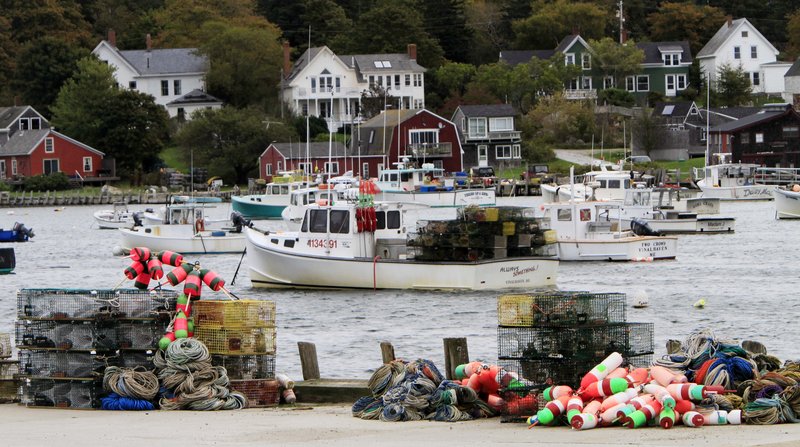BOWDOIN – Maine’s long-standing groundfish industry is at an all-time low. This once-vibrant industry, which used to land more than 50 million pounds of fish annually and bring millions of dollars and thousands of jobs to the state, is now a tiny vestige of itself. If you think this is due to overfishing, you’d be right. If you think that overfishing still exists and fish stocks are in terrible shape, you’d be wrong — tremendously wrong.
As of this year, all species managed by the National Marine Fisheries Service, including the ones harvested in New England waters, are being harvested sustainably. That’s right — overfishing is no longer occurring. What’s more, several stocks are at levels well above fully recovered. Yet Maine, in the face of all this recovery, has seen its landings shrink. Where did these landings go?
By my estimate, 60 percent of the fish currently landed in Gloucester, Mass., comes from Maine boats. As much as 40 percent of Boston’s landings also comes from vessels that used to call one of Maine’s ports home. Why?
The overfishing that led to the depletion of most New England species in the 1990s led to drastic measures necessary to rebuild the stocks. This made maximizing revenue, cutting expenses and getting the most out of fishing days critical to a fishing boat’s economic survival.
Boats could no longer afford to steam to Georges Bank from Maine, throw the lobsters they caught overboard and pay higher fuel prices. That meant landing in Massachusetts ports that had lower-cost fuel and a shorter steam to the fishing grounds. These ports also let them land the 500 lobsters each trip that the National Marine Fisheries Service allows.
Fewer boats buying fuel meant the fuel dealers who catered to Maine fishing boats went out of business, or increased margins to make it on lower sales. This made the fleet’s return to Maine even less certain.
A few years ago, groundfishermen asked Maine lobstermen, the Department of Marine Resources and the Maine Legislature for help by allowing fishing boats to land lobsters. Not only was their request rejected, but the DMR put wardens on Coast Guard boats and targeted Maine boats fishing outside state waters intent on landing in Massachusetts.
The state maintained that since the boats possessed Maine permits, they still fell under state jurisdiction. Really? The Maine boats simply tore up their state permits and moved their operations to Gloucester, and not a single lobster was saved.
Of the boats that stuck it out, many more left once the fuel tax exemption for fishing boats expired. So, a tax meant to help pay for roads was unfairly applied to fishing boats. The state never collected this tax from boats that left, and lost additional sales tax revenue because these boats also did most of their other spending out of state.
The fishing industry’s return is still possible, but the clock is running out. Most of the boats still think of themselves as “Maine boats.” Two years from now, they will probably give up on Maine and move everything, including their families, out of state. Once that happens the remaining infrastructure will disappear, and chances are so will the processing plants that today must bring in a large portion of the fish they use by truck.
Luckily, there is a good chance we can turn this around.
Allowing Maine groundfish boats to land lobsters is a long shot. But perhaps Maine lobstermen could see their way to allowing a winter season for offshore landings as long as those lobsters met Maine size restrictions and fishermen adhered to the federal 500-count limit.
The fuel tax gets revisited Tuesday at a hearing in Augusta. This is even more important to the fleet’s return. It’s also an easier fix. Given the new administration’s pro-business posture and commitment to removing tax barriers to business development, I expect plenty of support for this change.
If enough boats decide to come back to Maine, then suppliers should be able to lower their margins, and fuel prices should come down. Millions of dollars of additional spending from boats and crews will also return. And regardless of whether or not the lobster industry decides to help, a lot less lobster bait will have to be trucked into the state.
– Special to the Telegram
Send questions/comments to the editors.



Success. Please wait for the page to reload. If the page does not reload within 5 seconds, please refresh the page.
Enter your email and password to access comments.
Hi, to comment on stories you must . This profile is in addition to your subscription and website login.
Already have a commenting profile? .
Invalid username/password.
Please check your email to confirm and complete your registration.
Only subscribers are eligible to post comments. Please subscribe or login first for digital access. Here’s why.
Use the form below to reset your password. When you've submitted your account email, we will send an email with a reset code.